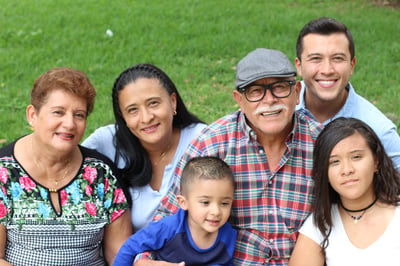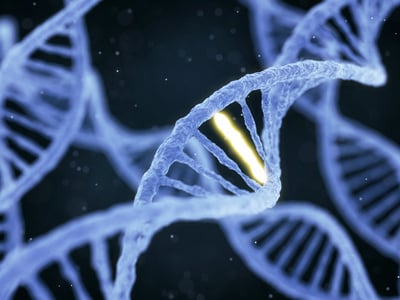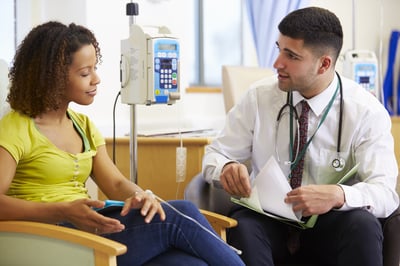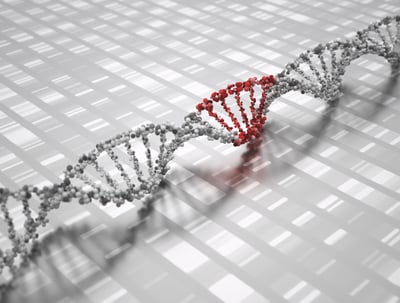Keyword: lynch



Relevance: High
Most relevant for: people with metastatic or recurrent cancer
Study: Genetic testing for inherited mutations may be helpful for all people with advanced or metastatic cancer
In a study of nearly 12,000 cancer patients with a variety of cancers, eight percent of participants with metastatic cancer had an inherited mutation in a cancer gene that qualified them for a targeted treatment approved by the FDA or for participation in a clinical trial. The majority of people with metastatic cancer were unaware that they had an inherited mutation, and had not receive gene-directed treatment to which their tumor may have responded. The study authors suggest that genetic testing for inherited mutations may be warranted for all patients with advanced or metastatic cancer. (posted 9/30/21)
Este artículo está disponible en español.
READ MORE ›


Relevance: High
Most relevant for: People with recurrent or advanced endometrial cancer
Update: Immunotherapy dostarlimab gains FDA approval for treatment of recurrent and advanced endometrial cancer
The FDA has given accelerated approval for the immunotherapy agent dostarlimab (Jemperli) to treat recurrent and advanced endometrial cancer that has a biomarker called mismatch repair deficiency (dMMR). This adds a new treatment option for people with recurrent or advanced endometrial cancer. (posted 5/18/21)
Este artículo está disponible en español.
READ MORE ›


Relevance: High
Most relevant for: People with Lynch syndrome
Study: Daily high-dose aspirin taken for at least 2 years reduces the risk of colorectal cancer but not other cancers in people with Lynch syndrome
Research has shown that daily aspirin use can reduce the risk of colon and other cancers. The Cancer Prevention Program 2 (CaPP2) study looked at the effect of daily aspirin in patients with Lynch syndrome. After 10 years of follow-up, the results showed that taking daily aspirin for two years reduced the frequency of colon cancer in patients with Lynch syndrome, and importantly, did not result in an increase in side-effects or complications. No benefit was seen for other Lynch syndrome-related cancers, including endometrial cancer. (5/17/21)
Este artículo está disponible en español.
READ MORE ›


Relevance: High
Most relevant for: People with advanced colorectal cancer and a type of biomarker called MSI-High (MSI-H)
Study: Immunotherapy drug Keytruda received FDA approval and showed benefit for treatment of colorectal cancer
In June 2020, the FDA approved Keytruda (pembrolizumab) as an initial therapy for advanced colorectal cancer. This approval was based on the results from the KEYNOTE-177 study. In this study, Keytruda was more successful than chemotherapy in delaying progression of certain types of colorectal cancers. (11/25/20)
READ MORE ›


Relevance: Medium
Most relevant for: People with pancreatic cancer and a family history of pancreatic or other cancers
Study: Inherited gene mutations found in pancreatic cancer families in Spain
This study looked for inherited mutations in genes known to be linked to hereditary pancreatic cancer. The results provide additional evidence that most hereditary pancreatic cancer is due to inherited mutations in genes that were previously associated with other forms of cancer. (10/29/20)
READ MORE ›


Relevance: Medium-High
Most relevant for: People with Lynch syndrome mutations
Study: Cancer risk associated with inherited mutations in Lynch syndrome genes
Lynch syndrome is the most common inherited cause of cancer affecting about 1 in 300 people. People with Lynch syndrome have an increased risk of colorectal endometrial and other cancers. A large study followed people with mutations in the Lynch syndrome genes MLH1, MSH2, MSH6 and PMS2 to determine the risk of other types of cancer. (2/21/20)
READ MORE ›


Relevance: High
Most relevant for: People diagnosed with metastatic breast cancer
Study: Supportive care can improve quality of life for people with metastatic breast cancer
Metastatic breast cancer patients have unique needs for treatment and care. Connecting patients to appropriate support services and palliative care is an area of need in health care. A recent study reported improvement in metastatic breast cancer patient quality of life and wellness with an intervention program called the Supportive, Education and Advocacy (MBC-SEA) program. (8/21/19)
READ MORE ›


Relevance: Medium-High
Most relevant for: Anyone diagnosed with breast cancer
Guideline: Breast surgeons recommend genetic testing for all breast cancer patients
The American Society of Breast Surgeons published statement on genetic testing for hereditary breast cancer on February 10, 2019. It includes recommendations about who should be tested. Among these is the recommendation that all breast cancer patients get genetic testing, as well as women who do not have breast cancer but fit the National Comprehensive Cancer Network (NCCN) guidelines. (3/25/19)
READ MORE ›


Relevance: Medium-High
Most relevant for: People diagnosed with triple-negative breast cancer
Study: Study identifies genes associated with risk of triple-negative breast cancer
Panel testing can identify women who are at increased risk for breast cancer. However, those at risk for triple-negative breast cancer cannot easily be identified because other than BRCA1, genes that increase the risk for triple-negative breast cancer are unknown. A new study uses panel testing to identify which genes increase the risk for triple-negative breast cancer. (8/23/18)
READ MORE ›


Relevance: Medium-High
Most relevant for: Women with an MSH6 or PMS2 mutation
Study: Mutations in Lynch syndrome genes MSH6 and PMS2 may be associated with breast cancer
Some women with mutations in MSH6 and PMS2, two Lynch syndrome genes, may have a modest (2 to 3-fold) increased risk for breast cancer. (6/14/18 updated 09/25/19)
READ MORE ›